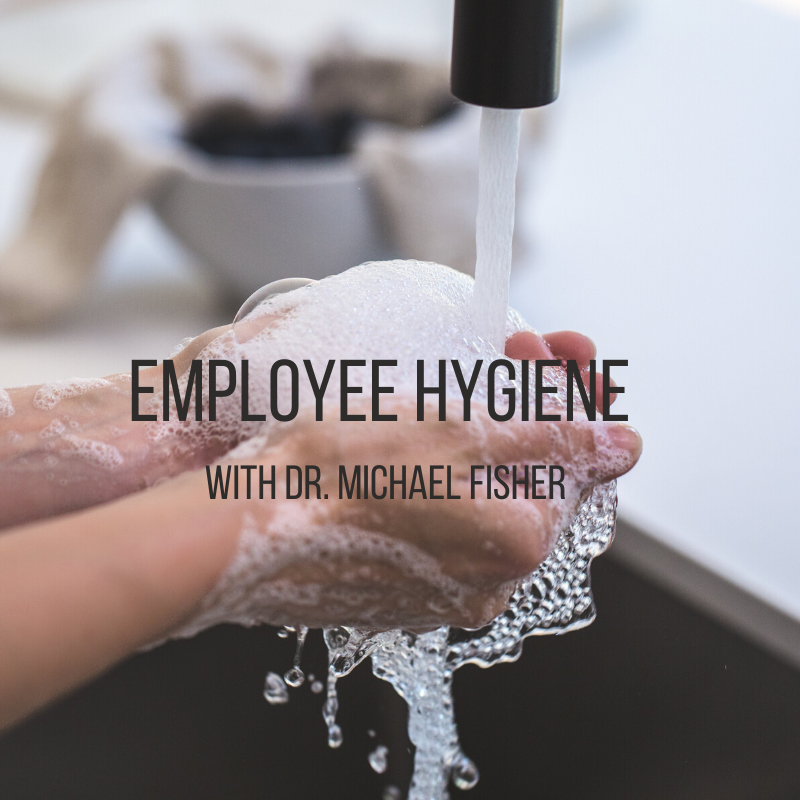
We are pleased that Dr. Michael Fisher has joined the FTCLDF website as a regular contributor. Dr. Fisher is a retired United States Department of Agriculture (USDA) Food Safety and Inspection Services (FSIS) veterinarian, bringing decades of experience enforcing FSIS regulations during the slaughter and processing of animals for which the USDA provides inspection services. Dr. Fisher is thrilled to bring you his expertise and guidance to help you navigate regulatory compliance. His goal is for small, USDA-inspected meat processors to succeed and to understand how to best maintain compliance and reduce regulatory issues.
Hygiene
The current global Coronavirus outbreak adds relevance to this month’s topic: employee hygiene. Personal hygiene is as important in the preparation of meat and poultry products intended for use as human food as it is in the prevention of infectious disease.
Meat and poultry products are adulterated if prepared under insanitary conditions whereby they may become contaminated with filth. Filth is any material considered offensive to the senses: sight, smell, hearing, taste, and touch. Meat and poultry products are adulterated if prepared by employees whose failure to meet the 9 Code of Federal Regulations (CFR) 416.5 performance standard for personal hygiene causes product to become contaminated with filth. There are three employee hygiene considerations: cleanliness, clothing, and disease control.
Cleanliness
“Cleanliness is next to godliness.” We all recognize the expression, even though we do not know its exact origin. Cleanliness is about the skin. If an employee’s skin in some way offends the sight, smell, hearing, taste, or touch, then cleanliness is absent.
The most common expressions of cleanliness are handwashing and showering. If we have reason to believe that our skin in some way offends the sight, smell, hearing, taste, or touch, then 9 CFR 416.5(a) requires that we wash that skin before allowing it to contact product, food-contact surfaces, or product-packaging material. Of course, if the skin is covered by an article of clothing, such as a glove, failure to wash the skin may not offend the sight, smell, hearing, taste, or touch.
Clothing
According to Mark Twain, “Clothes make the man.” He was referring to the fact that a poorly dressed man is not respected, but the point is valid. Clothes are important.
The aprons, frocks, gloves, and other outer clothing worn by persons who handle product must be clean at the start of each working day. If clothing in some way offends the sight, smell, hearing, taste, or touch, then 9 CFR 416.5(b) requires that the person change out of the contaminated clothing before handling product. Of course, if the clothing is covered by another article of clothing, such as a frock or apron, failure to change out of the contaminated clothing may not offend the sight, smell, hearing, taste, or touch.
Disease Control
Mark Hayman, physician and The New York Times best-selling author, said, “You can’t outsmart Mother Nature.” She always wins. One need only consider the on-going Coronavirus pandemic to see that Mother Nature cannot be controlled. To some extent, Mother Nature can be contained. Disease control is about containing Mother Nature by maintaining separation between meat and poultry products intended for use as human food and infectious bodily fluids and exudates.
If an employee has an infectious disease, open lesion, or infected wound that in some way offends the sight, smell, hearing, taste, or touch, then 9 CFR 416.5(c) requires that the person be excluded to the extent necessary to prevent adulteration of product. Exclusion means excluding the employee from contact with product, food-contact surfaces, or product-packaging material. Of course, containing infectious bodily fluids and exudates by use of a surgical mask or bandage covered by an article of clothing may not offend the sight, smell, hearing, taste, or touch.
Everything we need to know about personal hygiene we probably learned at an early age from our mother. Wash your hands. Keep your clothes clean. Cover your mouth when you sneeze. Good advice whether for avoiding the Coronavirus or preparing meat and poultry products intended for use as human food.
As always, if you have a question, please use the Contact Us link and ask.
Did you miss Dr. Fisher’s previous posts?
YOUR FUND AT WORK
Services provided by FTCLDF go beyond legal representation for members in court cases.
Educational and policy work also provide an avenue for FTCLDF to build grassroots activism to create the most favorable regulatory climate possible. In addition to advising on bill language, FTCLDF supports favorable legislation via action alerts and social media outreach.
You can protect access to real foods from small farms by becoming a member or donating today.